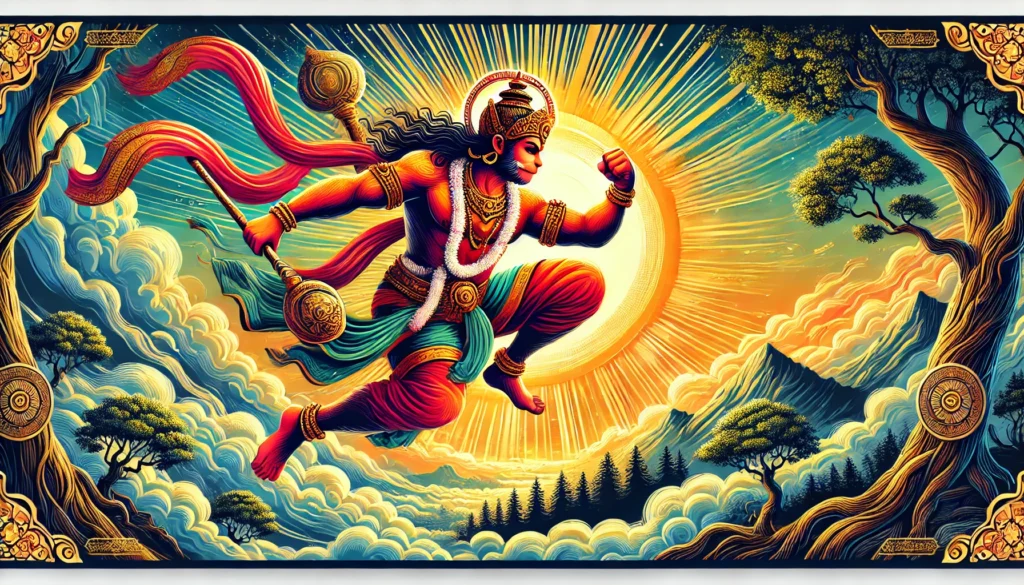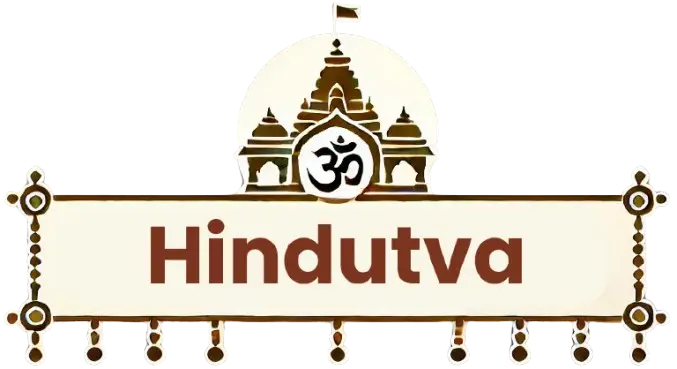Explore the divine aspects of Vayuputra Hanuman beyond the Ramayana. Learn about his origins, symbolism, roles in Hindu texts, and timeless lessons of strength, devotion, and resilience for modern life.
Lord Hanuman, revered as a symbol of devotion, courage, and wisdom, occupies a unique place in Hindu mythology. While his unparalleled role in the Ramayana, assisting Lord Rama in the rescue of Sita, is widely celebrated, Hanuman’s divinity extends far beyond this epic. Known as Vayuputra, the son of Vayu, the wind god, Hanuman embodies qualities of strength, agility, and boundless energy, making him one of the most beloved deities in Hinduism.

This article explores the lesser-known aspects of Hanuman’s divine presence, his roles in other scriptures, his symbolism, and the practical lessons his life offers for modern living.
The Origins of Hanuman: Born of Divine Winds
Hanuman’s birth is steeped in celestial significance. According to the Shiv Purana, his mother, Anjana, was an apsara cursed to live as a Vanara (monkey-like being). She prayed fervently to Lord Shiva for a child, and her prayers were answered when Vayu, the wind god, transferred divine energy into her womb.
This divine heritage endowed Hanuman with exceptional abilities:
- His agility and speed reflect his father Vayu’s essence.
- His courage and discipline stem from Shiva’s blessings.
For a deeper dive into Hanuman’s mythological origins, read Hanuman’s Divine Birth.
Hanuman’s Roles Beyond the Ramayana
While the Ramayana highlights Hanuman’s heroism and devotion, his presence in other texts reveals his multifaceted divinity.
1. Hanuman in the Mahabharata
In the Mahabharata, Hanuman plays the role of Bhima’s elder brother, as both are sons of Vayu. During the Pandavas’ exile, Bhima encounters Hanuman, who humbles him by demonstrating that physical strength alone is insufficient without wisdom and humility. This meeting teaches Bhima a valuable lesson about inner strength.
2. Hanuman in the Puranas
The Shiva Purana and Agni Purana describe Hanuman as a devoted disciple of Shiva and a protector of the cosmos. His stories emphasize his wisdom, patience, and ability to serve selflessly.
3. Hanuman in Tantra
In tantric traditions, Hanuman is revered for his protective and healing powers. His name is invoked in rituals to dispel negativity, overcome obstacles, and achieve spiritual growth.
For more on Hanuman’s appearances in Hindu texts, explore Hindu Epics and Puranas.
The Symbolism of Hanuman: Lessons Beyond the Physical
Hanuman’s attributes are deeply symbolic, offering profound insights for spiritual and practical living.
- Strength and Courage
Hanuman’s immense physical power represents the strength that arises from devotion and righteousness. His leap to Lanka symbolizes the courage required to tackle life’s challenges. - Selflessness and Devotion
Hanuman’s unwavering loyalty to Lord Rama epitomizes the virtue of selfless service. His actions teach us the importance of putting others before ourselves. - Wisdom and Discernment
Despite his strength, Hanuman often relies on his intellect, reminding us that mental clarity is as important as physical power. - Control Over Ego
Hanuman’s humility, despite his divine abilities, underscores the significance of conquering the ego to attain spiritual growth.
For a broader understanding of Hindu symbolism, refer to Hindu Symbols and Meanings.
Worship of Hanuman: Practices and Beliefs
Hanuman is one of the most widely worshipped deities in India and beyond. His temples are centers of devotion, attracting devotees who seek strength, courage, and protection.
Rituals and Offerings
- Hanuman Chalisa
The recitation of the Hanuman Chalisa is a common practice. It is believed to invoke Hanuman’s blessings, dispel fear, and bring peace. - Sindoor and Oil Offerings
Devotees apply sindoor (vermilion) and offer oil to Hanuman idols, symbolizing their surrender to his divine protection. - Auspicious Days
Tuesdays and Saturdays are considered sacred for Hanuman worship. On these days, devotees offer bananas, jaggery, and garlands of marigold flowers.
Hanuman in Yoga and Spiritual Practices
Hanuman is often associated with pranayama (breath control) due to his lineage as Vayuputra. Breath is considered a vital life force, and practicing pranayama can help one achieve focus and inner peace.
The Hanumanasana (Monkey Pose) in yoga is inspired by Hanuman’s leap to Lanka. It symbolizes flexibility, determination, and effort balanced with surrender.
Hanuman’s Timeless Lessons for Modern Life
Hanuman’s stories transcend mythology, offering practical lessons for contemporary living:
- Resilience in Adversity
Hanuman’s ability to overcome challenges teaches us the importance of resilience in facing life’s uncertainties. - Teamwork and Leadership
His role in Rama’s quest highlights the value of collaboration and selfless leadership. - Balancing Strength with Wisdom
Hanuman’s wisdom ensures his strength is always channeled for the greater good. - Fearlessness
Hanuman’s name is often invoked to dispel fear and instill courage in devotees.
Hanuman in Art, Literature, and Culture
Hanuman’s presence is celebrated in Indian art, literature, and performing arts, symbolizing his universal appeal.
Artistic Depictions
From intricate temple carvings to colorful murals, Hanuman’s heroic deeds are a favorite subject in Indian art. He is often depicted carrying the Sanjeevani mountain or bowing before Rama and Sita.
Cultural Influence
Hanuman’s character is central to Ram Lila performances and traditional dance forms like Kathakali. Modern adaptations in films, comics, and animated series continue to bring his stories to younger generations.
Vayuputra Hanuman, as a divine figure, embodies courage, devotion, and wisdom. While his feats in the Ramayana are legendary, his influence extends far beyond this epic, making him a multifaceted deity revered across traditions. His life offers timeless lessons on resilience, humility, and the power of unwavering faith.
By understanding Hanuman’s broader narrative, we connect with a deity who continues to inspire and guide millions, offering spiritual and practical wisdom to navigate the complexities of modern life.
Author:
Dr. Aryan Mishra – Historian & Cultural Analyst
Email: [email protected]

